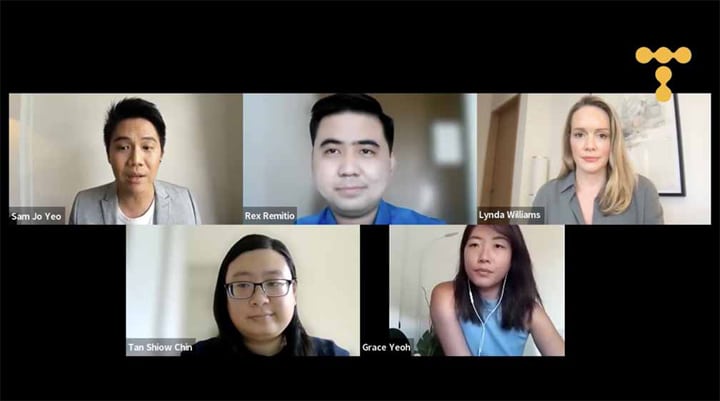As Covid-19 cases fluctuate across major metropolitan areas across the country, the impact of the pandemic continues to affect workers, especially those in the media industry.
Media intelligence platform Telum Media brought together journalists, mental health advocates and wellbeing experts in the webinar “Workplace Wellbeing in Media” to share their insights and expertise around mental health in the newsroom.
Panelists included CNN Philippines correspondent Rex Remitio, CNA Digital senior reporter Grace Yeoh, Philippine Star associate health editor Tan Shiow Chin, and Vigor PR founder and managing director Lynda Williams, who is also co-founder of The Soothe, a wellness center. centric digital media company.
One of the main topics of discussion was how journalists have to deal with an endless news cycle, coupled with tight deadlines and long working hours, which can cause stress, burnout, anxiety and fatigue. Add to that the work-life imbalance caused by working remotely or from home.
“The lines certainly [have gotten] blurry. People were waking up early and finishing up really late,” Williams said.
She shared that this can be solved by reducing working hours by practicing time management to prevent work from spilling over into their personal time.
Employers, in turn, should strive to improve segregation of duties and manpower, and manage customer expectations.
Workplace toxicity, which greatly affects the mental health of employees, was also discussed at the event. Toxic work environments breed unrest, competition, low morale, constant stressors, negativity, illness, high turnover, even bullying. The effects of these can manifest in a number of physical symptoms, including sleepless nights, a feeling of constant alertness and a feeling of restlessness.
According to Williams, “If you’re in pain, it’s important to start noting down exactly what happened and when it happened, the cause and the ramifications. [of such behavior].”
“Yes [management] or human resources don’t understand [the situation] or are unable to find a solution, then it’s time to go,” she said.
“Know that you are not helping to feed [such] toxic culture,” noted Yeoh, who added that workers need to take responsibility for their own behavior and not get involved in this toxic cycle or fuel the toxic culture by stepping out of the cycle.
Workplace well-being extends to a sense of psychological safety and a nurturing environment where people feel comfortable being themselves.
Journalists at the event shared ways to avoid burnout, including untangling work identity and finding purpose elsewhere, planning regular vacations and breaks, identifying stressors and giving more time. pay attention to personal care.
More than that, Chin stressed that normalizing conversations about mental health and improving literacy on how to deal with stress should be standard measures in any organization.




